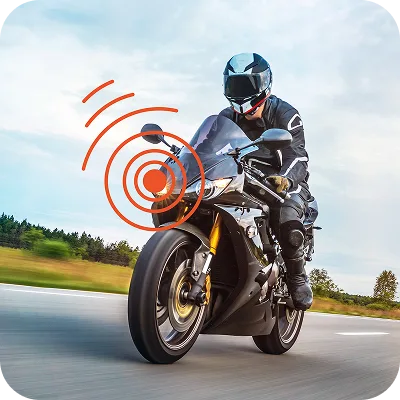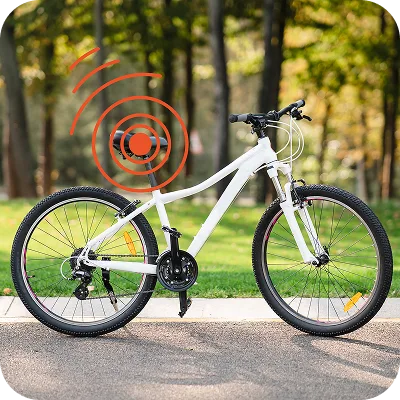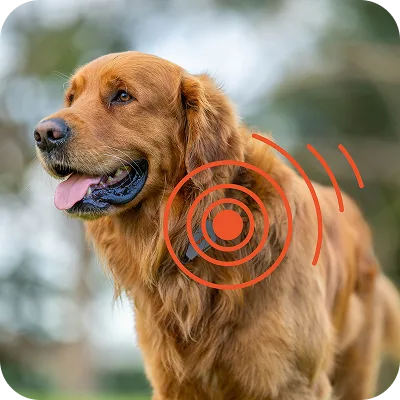GPS Tracker vs Dog Tracker Chip: 5 Differences!
Dogs are runners. Obviously!
If your dog’s got a habit of pulling a Houdini act and vanishing into the wild, you’ve probably wondered about your options for finding them quickly. A dog tracker chip and Dog GPS tracker are two common solutions. But they’re not the same. Let’s break down the big differences between these two so you know what’s worth your money.
1. Purpose: Identification vs. Real-Time Tracking
Dog tracker chip are like your dog’s permanent ID card. They’re tiny, implanted under the skin, and store a unique ID number that links to your contact info. The catch? Someone has to find your dog, take them to a vet or shelter, and scan the chip before you get that call. Not exactly speedy. Typically, microchips cost between $25–$50, including the procedure.
GPS trackers, on the other hand, are real-time lifesavers. These devices attach to your dog’s collar and let you track their every move. No waiting, no middleman. just you, your phone, and your furry escape artist. PAJ PET Finder 4G cost $29.99
2. Tech: Passive vs. Active
A microchip doesn’t actively send signals or help you track your dog’s location. It only works when scanned by a special reader, which means its usefulness depends entirely on someone else’s help and you cannot check dog’s microchip tracker with phone. You need a specialized scanner for it.
A GPS tracker is an active device that uses satellite signals and cellular networks to update your dog’s location in real-time.
Read 5 benefits of tracking your puppy here
3. Size and Placement
Dog tracker chips are tiny about the size of a grain of rice and are implanted under your dog’s skin, usually between their shoulder blades. They’re permanent, painless, and invisible.
GPS trackers are small but bulkier, usually the size of a matchbox. They clip onto your dog’s collar and are lightweight enough for dogs of all sizes to wear comfortably.
4. Functionality: Limited vs. Feature-Packed
The functionality of a Dog tracker chip is very limited. If a dog runs off, someone needs to find him and bring him to the vet to read the chip and find the owner.
PAJ Pet Finder 4g is a multitaskers, let’s look at a list of things this powerful device is capable of
1. Live Tracking: Monitor your pet’s real-time location with 60-second to 10-minute updates.
2. Find My Dog Feature: Receive location updates every 5 seconds for 3 minutes to locate your pet quickly.
3. Geofence Alerts: Set virtual boundaries and receive instant notifications if your pet leaves the designated area.
4. Activity Monitoring: Track your dog’s activities and routines through the dedicated app to ensure their well-being.
5. Route History: You can access up to a year’s worth of your pet’s journey history to review its movements.
6. Waterproof Design: With an IP67 rating, the tracker is reliable in any weather condition, ensuring durability during adventures.
7. Lightweight and Comfortable: Weighing just 48 grams, the small tracker offers unmatched comfort for your pet.
8. Battery Saving Zone: Enhance daily battery savings by utilizing Wi-Fi zone coverage, extending battery life to 6 days.
9. Training Features: Use acoustic signals for practical call training, aiding your pet’s responsiveness.
10. LED Light Function: The built-in LED light increases your pet’s visibility during night walks or in low-light conditions.
5. Dependence on Others
When tracking a dog with a chip, your dog’s safety depends entirely on someone else finding and scanning them. But with a GPS tracker, you’re in control. You can locate your dog anytime, anywhere no “ifs” or “maybes.”
So, if you’re looking for peace of mind, a GPS tracker is the way to go. For runaway dogs or adventurers, a GPS tracker is a game-changer. PAJ GPS trackers provide highly accurate real-time location updates, often pinpointing within a few feet.
Conclusion
GPS tracker works on all breeds whether big or small, so no need to worry that your dog is small to fit a tracker as PAJ PET Finder 4G is lightweight and comes with innovative strap for secure attachment.
A GPS tracker might just save your dog’s life and your sanity. So, Don’t wait any more. Connect with PAJ GPS trackers today!
























